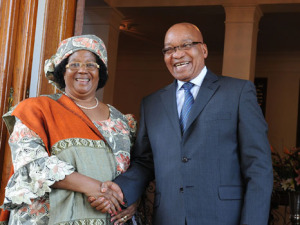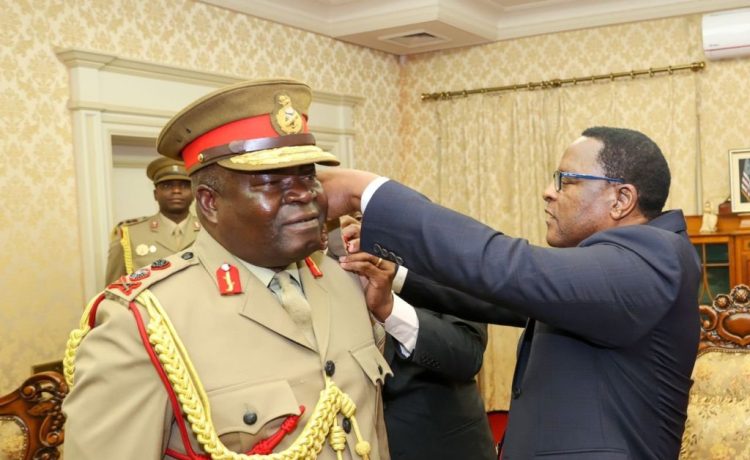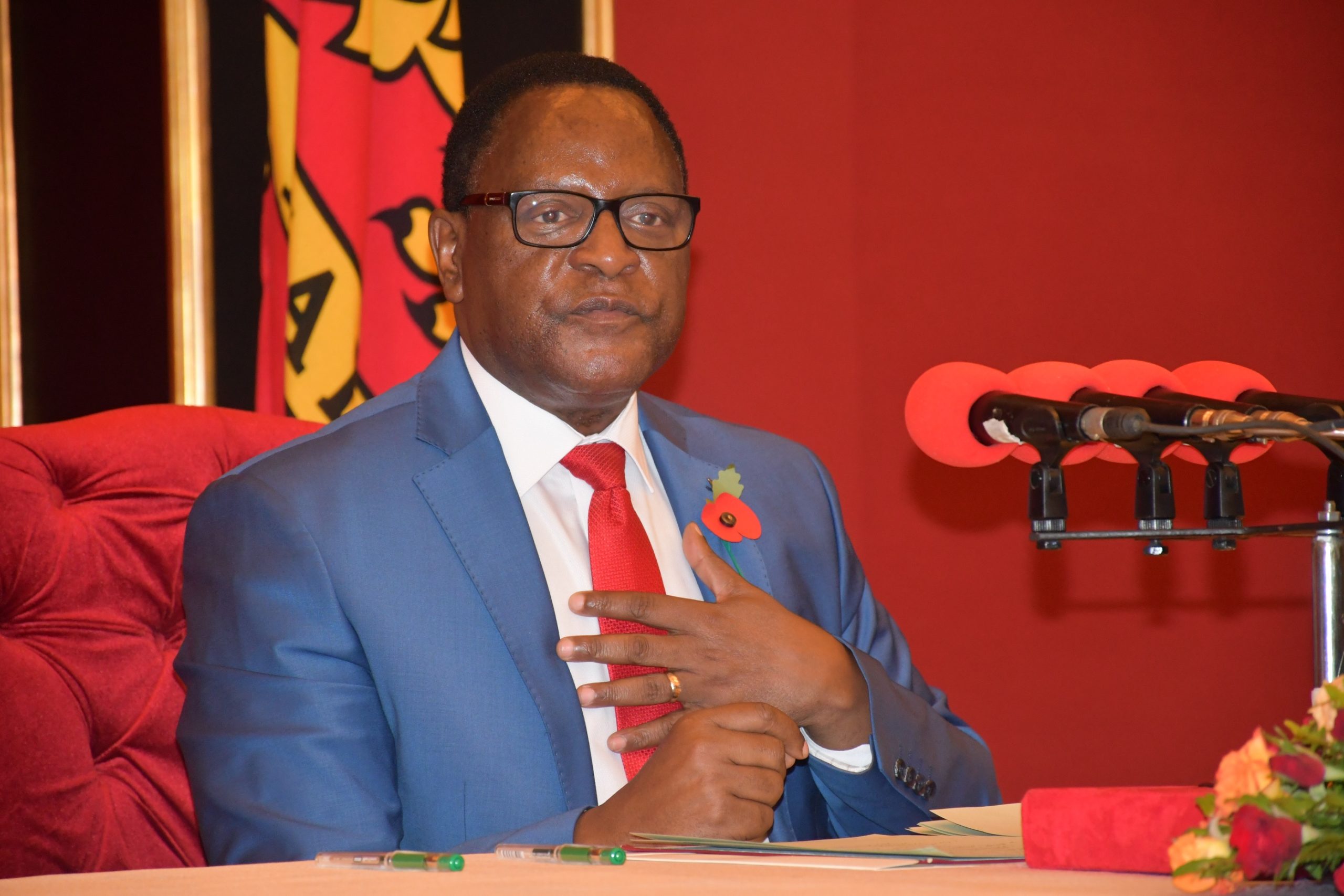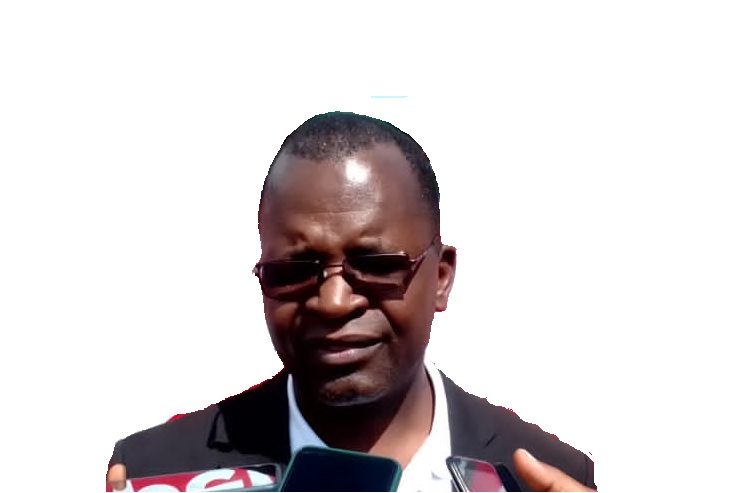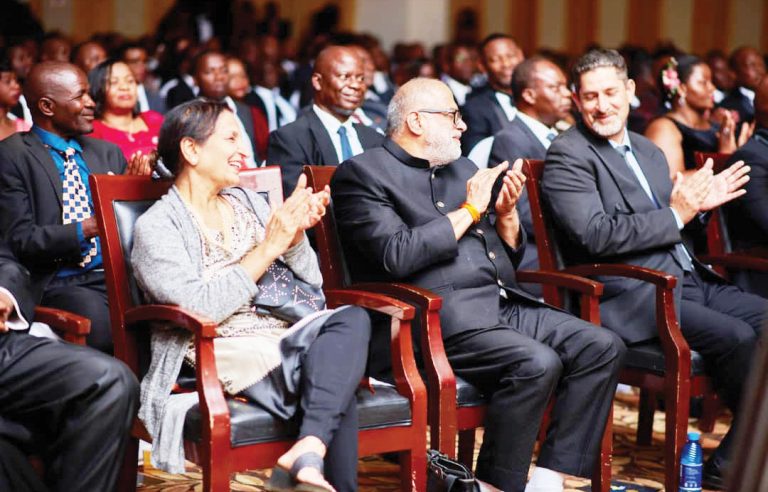How Sattar bulldozed K14BN Police Water Cannons deal
… PPDA ignored over expensive deal
… Six water cannon vehicles dumped at MDF which says it has no use for
BY GOLDEN MATONGA
On 13th November 2018, Zuneth Sattar wrote a letter to the Inspector General of Police, Rodney Jose, requesting a meeting. Jose acknowledged receipt of Sattar’s letter which he said had indicated that the agenda for the meeting was to discuss a Local Purchasing Order (LPO).
The Inspector General of Police informed the businessman, the meeting shall be held on 26th November 2018 at the Inspector General’s office at Area 30 at 15:30 hrs.
“I look forward to seeing you,” wrote the police chief.
Without any valid contract, without seeking approval from the Office of the Director of Public Procurement and Disposal of Asset Authority (PPDA), and in spite of many pressing financial needs for the police, including poor housing for its officers and a dilapidated fleet of vehicles, Malawi Police Service (MPS) would agree to spend over K14 billion taxpayer money out of the country’s thin foreign currency reserves which are also required to buy crucial supplies such as medicine and fuel, on eight water cannons to be supplied by Sattar.
The country’s parliament was not asked for its opinion. The contract was not advertised. The public was not told of the existence of the contract. The office of Public Procurement and Disposal of Assets (PPDA) –the body mandated by law to approve major contracts–was side-lined and then told lies about the contract.
The PPDA denounced the contract as too expensive for the country but granted MPS its request to proceed with the contract after Inspector General Jose informed the PPDA that the supplier had already started manufacturing the water cannons. The Country’s laws state that any procurement has to be reviewed and approved first by the PPDA before any such contracts are agreed upon.
The MPS Internal Procurement Committee (IPC) had no say on the deal, despite the law saying so. It would only be asked to rubber-stamp the decision to grant Sattar the “contract” whose price the supplier decided.
The water cannons, pegged at USD 1, 754, 000 each, were bought at a contract sum, several times the regular market cost, according to multiple sources familiar with the investigation.
A comparison of other prices for water cannons revealed the cannons as extremely expensive. For example, when London’s Metropolitan Police procured their own water cannons in 2014, they bought the anti-riot mobile vehicles at just £30,000 each K24 million each) following negotiations with the supplier at a time the cost of a single new one at £870,000 (USD 984 709). The London Metropolitan police procurement suggests cheaper alternatives are available.
The Office of President and Cabinet–under President Peter Mutharika–instead of policing the expensive contract– would pressurize the Secretary to Treasury to pay the contract, our investigations have further revealed.
The procurement was justified as necessary preparation for the 2019 presidential election but delivery notes reviewed by the PIJ show that the water cannons only started arriving in the country after the disputed elections which, ironically, prompted nationwide protests that often turned violent.
Puzzlingly, six of the water cannons which arrived in the country were deployed to the military—the Malawi Defence Force (MDF) which again did not want the water cannons.
In an interview, MDF Commander General Vincent Nundwe, who was removed as military chief by the DPP administration prior to the decision to deliver the water cannons to MDF, lambasted the deal as a clear case of abuse of office, saying the MDF did not want the water cannons and they have no use in MDF’s mandate.
“The six of the water cannons are here. That was a decision by the DPP government. We will give them to the Air force to be used for firefighting. The military has no water cannons in operations; we use ammunition. It’s not in our syllabus at Mafco but perhaps when your house is on fire the Air force will use them.
While the six MDF water cannons arrived, two—belonging to the police—the owners of the original contract—have not arrived yet in the country and are stuck at a port in Mozambique, according to sources familiar with the procurement.
Inspector General of Police George Kainja in June this year wrote a letter–reviewed by the PIJ–to the Ministry of Foreign Affairs asking for facilitation of transportation of five water cannons using the port of Beira.
The PIJ reached out to Sattar for comment through his lawyers but the lawyers said commenting on the matters would be prejudicial to the current UK and Malawi investigation.
The details of the contract for procurement of the eight water cannons—procured through a contract whose total sum was USD 14, 032, 000.00 (MK13, 751, 360, 000)—are among some contracts Sattar signed with Malawi Government, currently subject of a major unprecedented investigation by the British law enforcement agency—National Crimes Agency (NCA)—which is collaborating with Malawi’s Anti-Corruption Bureau (ACB).
As exclusively revealed by the PIJ in October, the UK investigation focuses on allegations that members of both the Peter Mutharika administration and successor Lazarus Chakwera received kickbacks from the Leicester-based businessman.
Payments to Sattar through various bank accounts reviewed by the PIJ confirms both the Mutharika and Chakwera administration have honoured the contract with Sattar.
The Anti-Corruption Bureau (ACB) has since ordered the suspension of several contracts at Police, Immigration, and the Malawi Defence Force including two Sattar-connected companies Malachite FZE and Xavier Ltd.
Crafting a Phantom Contract
On 2nd August 2019, a year after the Inspector General of Police met Sattar at the businessman’s request to discuss LPO order no.629951, Sattar was back at Area 30 to negotiate ‘the contract’ with senior police officers at Area 30.
According to the minutes of the meeting, Deputy Inspector General (Operations), Duncan Mwapasa, Deputy Inspector General (Administration), John Nyondo, Commissioner responsible for Finance, Tadius Samveka, and Service Administration Officer, Mwabi Kaluwa attended the meeting.

The minutes underscores the reliance on the LPO which is not a contract and which was eight years old. Officials did not question the reliability and legality of the LPO.
“The supplier indicated that the contract dates back to 2012 when Malawi Police Service issued a local purchasing order No.629951, dated 02.04.2012 to Malachite FZE and the latter issued a Pro-forma invoice. The unit price of each water cannon is 1, 754 000 United States Dollars and the total price for the eight water cannons is 14 032 000 United States Dollars,” reads the minutes of the meeting.

The date of the LPO suggests that the LPO originated during the Bingu wa Mutharika administration. Following the negotiations, Police informed Attorney General Kalekeni Kaphale about the contract in a letter which also indicated to the country’s chief legal advisor that MPS had obtained a no-objection from the Office of the Director of Public Procurement and Disposal of Assets through letter number ODPP/03/41 dated 12th December 2018 which permits it to procure the eight water cannons from the supplier.
During that meeting, the two sides also discussed pricing for the water cannons with the supplier indicating that the price of water cannons had gone up by approximately USD 200 000 each per water cannon. The minutes say police agreed to maintain the old prices “due to financial services the service is going through.”
The meeting also agreed that the first 2 water cannons would be delivered within 40 days and the remaining 6 would be delivered within seven months. 25 percent of the contract sum would be paid in October 2019, 50 percent of the sum in June 2020, and the remaining 25 percent in December 2020.
On 6th August 2019, Chief Secretary to the Government Lloyd Muhara wrote the Secretary to the Treasury Cliff Chunda advising that the government had funded the police service to specifically finance the water cannons procurement, according to a letter titled APPROVAL TO PROVIDE FUNDS TO MALAWI POLICE SERVICE.

The letter sounded like an attempt to put pressure on the Secretary to Treasury to allow the expenditure, denoting reluctance on the part of the Secretary to Treasury to fund the procurement.
“I write to inform you that Government has approved funds to procure water cannons as earlier requested by Malawi Police Service. Since this request is outstanding for a long time. I would appreciate it if you give it the attention it deserves,” wrote Muhara.
According to multiple sources in government who served under both the Peter Mutharika and Lazarus Chakwera administration, the developments in Sattar’s story are not surprising as Sattar had become a powerful and untouchable figure, particularly under the Mutharika leadership.
Several officials, speaking anonymously, described Sattar as a Gupta-like figure, in reference to the Indian-born South African family accused of state capture in South Africa through a complex web of corruption.
In 2013, Sattar-connected companies, Rummage Pace and Top Prima were implicated in the cashgate scandal–a theft of K24 billion public funds– through the British-funded Baker Tilly Forensic Audit report. However, the ACB under Director General Reyneck Matemba and Attorney General Kalekeni Kaphale cleared the companies of any wrongdoing.
British investigators, who for years watched Sattar closely, believe he gained such a privileged position thanks to bribes paid to powerful politicians and senior government officials, according to Sattar’s own lawyer’s court deposition in an ill-fated application to stop the ACB from cooperating with UK law enforcement on the investigation.
NCA officials collected evidence of Sattar offering bribes to officials through eavesdropping tactics while the ACB collected troves of documents further implicating officials during a raid at his home and office in Lilongwe, according to people familiar with the investigation.
Like Mutharika like Chakwera

When President Lazarus Chakwera was inaugurated as Malawi’s sixth president, he famously promised to clear the rubble of corruption. However, despite his appointees at Anti-Corruption Bureau (ACB), Director of Public Prosecutions (DPP), and later Attorney General launching war on corruption with several interventions including high profile arrests and suspension of suspect contracts, payments for the water cannons deal continued under the Chakwera presidency.
On 31st August 2020, MPS Finance personnel requested the first transfer of funds to Malachite FZE account at Noor Bank account number 001107630433 which is the country’s Budget Director Pearson Ponderani and Accountant General Jeane Munyenyembe approved, according to documents we have reviewed.
The payment was effected on 23rd October 2020 after Ponderani and Munyenyembe wrote the Director of Banking and Currency Management at Reserve Bank of Malawi to transfer USD 1, 955, 672. 00.
In August last year, the Chakwera administration signed off on a further USD6m of payments. Payments to Sattar’s company were discussed as recently as May this year on the basis of ‘no objection’ from the public procurement watchdog, according to documents.
The second payment was USD2, 372 800.00, third payment was USD3, 475 973.70 leaving a balance of USD 6, 227, 554.30. On 25th May 2021, Police requested the fourth payment for the procurement.
“I have the honour to submit a request for the payment towards the purchase of public order motor vehicles (water cannons) as stated above for Malawi Police Services. The Office of the Director of Public Procurement had already granted us a “No objection”. The delivery of the goods will be made to the Malawi Police Service,” wrote a senior police finance officer.
Sattar—the Manufacturer?
Prior to the payments, there were brazen attempts to undermine the country’s procurement laws, despite parliament passing them to ensure public funds are protected and corruption is stamped out, with officials pushing the narrative that the vehicles were essential to policing the elections.
In another letter to the PPDA requesting validation of the contract, former IG Jose further said the contract had to go ahead as the supplier was getting impatient with the government.
“As production takes 12 to 24 months, we as Malawi Police Services have requested the supplier to delay the process by 24 months due to our financial situation, later then, further communications were done to delay a further 24 months. We are now in communication with the supplier where they are not willing to delay any longer and would like this contract completed. We as Malawi Police Service do need the water cannons taking into consideration the forward coming elections and the situations. Having taken into consideration the date of the contract, I seek your advice and guidance to validate this contract,” wrote Jose.
The Attorney General’s response is not known but the contract was eventually signed and payments kicked in despite the PPDA boss Timothy Kalembo warning the government the contract was too expensive and unnecessary.
A senior military official who reviewed the procurement of the water cannons said the cost was eight times the average price on the market.
“We have two observations,” Kalembo–the PPDA boss who reviewed the contract wrote to the police boss on 12 December 2018 expressing fears about its costs.
“First, considering that production of cannons has already started and that the government of Malawi has already committed to this agreement, this office grants you approval for you to proceed using a single sourcing method to procure the eight water cannons from Malachite FZE. The approval notwithstanding, it should be expressly stated that the procuring of these eight water cannons which are principally aimed at managing public order during the forthcoming tripartite elections at a cost of US 14 032 000.00 does not achieve value for money. It is our considered opinion that these public resources could have been used for other pressing demands in Malawi Police Services.”
The PPDA also observed a second problem with the contract on close scrutiny: a provision stipulating that cancellation of the contract would result in a 60 percent charge of the contract price.

“Considering section 47 of the Public Procurement and Disposal of Assets Act 2017 (PPD Act) permits negotiations between a procuring entity and successful bidder, we strongly advise that you negotiate with the supplier on lowering the cancelation charge e.g. 30 % so that if agreed upon the supplier, then only the amount may be paid to the supplier and then opt out of making the full payment of water cannons which will be used during the forthcoming tripartite elections,” added the PPDA boss.
Nonetheless, the contract was approved by the PPDA despite the various procurement laws contravened including the mandatory requirements for government departments and agencies to seek PPDA approval before entering contracts of particular thresholds of funds, advertising tenders for competitive bidding, among others.
According to PPDA thresholds revised annually and established by Section 9 © of the Public Procurement Act, in 2018, MPS could not make any procurement above K40 million without seeking PPDA approval, and every procurement valued at K50 million was supposed to be published in public and goods which could be procured via quotations were limited to K10 million while procurements above K400 million, had to be subject to open tender using the International Competitive Bidding framework and also subject to approval by PPDA.
The argument that the contract had to proceed because the manufacturer had already started manufacturing the water cannons not only makes a mockery of the procuring laws but also raises eyebrows as the delivery notes reviewed by the PIJ shows that the water cannons, CEN B6 Level Protected Armoured Truck 2020 model, were produced by Iveco, not Malachite FZE.
On 2nd November 2021, the Anti-Corruption Bureau issued a restriction order to Malawi Police Service, Malawi Defence Force, and Immigration department stopping them from dealing with several companies. Three Sattar-connected companies– Xavier Ltd, Xelite Stripes, and Malachite FZE. In December 2021, Malawi’s new combative Attorney General (AG), Thabo Nyirenda, debarred some companies owned by businesspersons of Asian descent for allegedly making huge and questionable claims against the government. None of Sattar’s companies were affected.
Sattar and his associate Ashok Nair in November unsuccessfully attempted to obtain a High Court injunction to stop Malawi media from publishing stories on investigations against them for alleged fraud and corruption.

Zuneth Sattar is a Malawian-born businessman recently arrested by UK authorities for corrupting politically connected officials and public servants in Malawi to gain business contracts. The Platform for Investigative Journalism first broke the details of the Sattar investigation detailing how UK authorities have been watching Satar for years as he—allegedly—corrupted successive Malawi governments. In October, UK’s National Crime Agency (NCA) and Anti-Corruption Bureau (ACB) pounced on Sattar and his associates simultaneously in Leicester, United Kingdom, and Lilongwe, Malawi. The PIJ, committed to independent journalism, has been digging on why Sattar is regarded as a big catch as he captured the whole Government machinery.
…………………………………………………………………………………………………

.jpg)

.jpeg)
